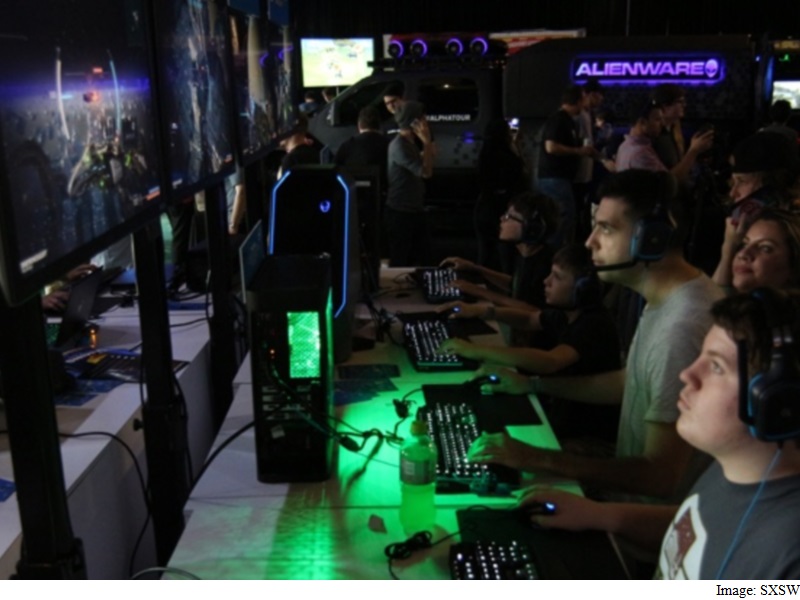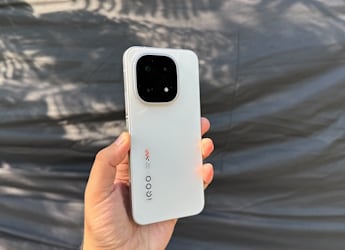- Home
- Games
- Games News
- SXSW Cancels Gamer Panels After Threats
SXSW Cancels Gamer Panels After Threats

SXSW Interactive, one of the country's largest technology conferences, abruptly canceled two panels linked to Gamergate on Monday night after receiving what it termed "numerous threats of on-site violence."
One panel, titled "Level Up" and coordinated by IBM Watson interaction designer Caroline Sinders, focused on how design and interface choices could and have decreased harassment in games such as "League of Legends." It was quietly approved by SXSW in early October. The other, a pro-Gamergate panel called "Save Point," coordinated by the Open Gaming Society's Perry Jones, promised to discuss the "social/political landscape in the gaming community." It was approved last week.
Threats have become increasingly commonplace at tech conferences and other industry gatherings, where they have interrupted multiple talks about Gamergate - the undying culture war around diversity and inclusion in video games.
But it would seem that this cancellation was fundamentally different from the ones at Utah State or the Society of Professional Journalists' Airplay event. According to Sinders, SXSW organizers repeatedly declined to discuss the security concerns of female panelists in the lead-up to the event.
And when organizers received threats to those panelists - both Sinders and Jones say they were not personally or directly threatened - SXSW canceled both events without alerting them on what the threats were, who made them or how they could report them to law enforcement. (Neither SXSW Interactive nor its director, Hugh Forrest, immediately responded to The Washington Post's request for comment.)
"This email serves as notice that SXSW Interactive has made the decision to cancel the 'Level Up: Overcoming Harassment in Games' session for March 2016 in Austin," reads the email Forrest sent panelists, which Sinders provided to The Post. "We have already received numerous threats of violence regarding this panel, so a civil and respectful environment seems unlikely in March in Austin. For this reason, we have also canceled other sessions at the 2016 event that focused on the GamerGate controversy."
The controversy wasn't news to SXSW, though: Sinders and her co-panelists say that they'd had security concerns, and alerted the festival to them, as early as August. SXSW panels are chosen, in part, by an online voting process. When Gamergaters began "brigading" the "Level Up" panel, or down-voting it en masse, Sinders let SXSW know that harassment from Gamergate enthusiasts could become a problem.
Later, in October, Sinders repeatedly emailed SXSW festival coordinator Andrew McNeill to ask whether they could discuss basic security concerns - such as a "safe word" to use if audience members appeared to get out of line. McNeill did not immediately respond to her emails but eventually sent the following response, which Sinders provided to The Post:
"We appreciate your thoughts and always welcome feedback from our community. That said, SXSW is a big tent and we strongly believe in showcasing a very diverse range of ideas and opinions, even if we as a staff don't always agree with them. If everyone shared the same viewpoint, that would make for a pretty boring event."
Meanwhile, SXSW organizers told Jones - of the pro-Gamergate "Save Point" panel - that they had event security and could offer "additional security measures" if they were "deemed necessary."
The exchanges paint a picture of incompetence, or at least confusion, at one of America's largest technology conferences - a conference that has increasingly promised to welcome the voices of women and minorities. The 2015 edition, held in Austin in March, included more than 100 panels on gender and racial diversity in tech, including several sessions devoted entirely to misogynist harassment on social media and in video games. The conference claims to weigh what it calls "GLOVE principles" when it confirms its sessions. GLOVE stands for diversity in gender, location, opinion, variety and ethnicity.
And yet, critics say the recent Gamergate meltdown would seem to suggest that SXSW organizers - and the tech industry more broadly - are still fundamentally divorced from the experiences of women. On Oct. 27, BuzzFeed threatened to withdraw from the festival if the "Level Up" panel was not restored, writing that it was "disturbed" to learn that SXSW was not doing more to address the "urgent challenge" of digital harassment.
Sinders points out that had organizers wanted to learn more about the issues they were facing and the options they had, plenty of people would have talked to them: Dozens of nonprofits are devoted to fighting harassment, and SXSW presumably has partners in local and regional law enforcement.
"It never should have gotten to this point," Sinders said. "SXSW needs to ask itself: What kind of community are they trying to build?"
To panelists like Sinders, those questions are far from theoretical: In April, someone called in a fake active-shooter threat that got a SWAT team sent to the home of Sinders' mother. Her co-panelists, Randi Harper and Katherine Cross, also have faced similar incidents.
"Hey mom," Sinders texted her mother Monday night. "A panel I was on received threats."
She goes on to instruct her mother to call police, in case she gets SWATted again.
"PS, I'm fine," she added.
© 2015 The Washington Post
Catch the latest from the Consumer Electronics Show on Gadgets 360, at our CES 2026 hub.
Related Stories
- Samsung Galaxy Unpacked 2025
- ChatGPT
- Redmi Note 14 Pro+
- iPhone 16
- Apple Vision Pro
- Oneplus 12
- OnePlus Nord CE 3 Lite 5G
- iPhone 13
- Xiaomi 14 Pro
- Oppo Find N3
- Tecno Spark Go (2023)
- Realme V30
- Best Phones Under 25000
- Samsung Galaxy S24 Series
- Cryptocurrency
- iQoo 12
- Samsung Galaxy S24 Ultra
- Giottus
- Samsung Galaxy Z Flip 5
- Apple 'Scary Fast'
- Housefull 5
- GoPro Hero 12 Black Review
- Invincible Season 2
- JioGlass
- HD Ready TV
- Laptop Under 50000
- Smartwatch Under 10000
- Latest Mobile Phones
- Compare Phones
- Tecno Spark Go 3
- iQOO Z11 Turbo
- OPPO A6c
- Samsung Galaxy A07 5G
- Vivo Y500i
- OnePlus Turbo 6V
- OnePlus Turbo 6
- Itel Zeno 20 Max
- Lenovo Yoga Slim 7x (2025)
- Lenovo Yoga Slim 7a
- Lenovo Idea Tab Plus
- Realme Pad 3
- Garmin Quatix 8 Pro
- NoiseFit Pro 6R
- Haier H5E Series
- Acerpure Nitro Z Series 100-inch QLED TV
- Asus ROG Ally
- Nintendo Switch Lite
- Haier 1.6 Ton 5 Star Inverter Split AC (HSU19G-MZAID5BN-INV)
- Haier 1.6 Ton 5 Star Inverter Split AC (HSU19G-MZAIM5BN-INV)







![[Sponsored] Haier C90 OLED TV | Dolby Vision IQ, 144Hz OLED and Google TV in Action](https://www.gadgets360.com/static/mobile/images/spacer.png)









